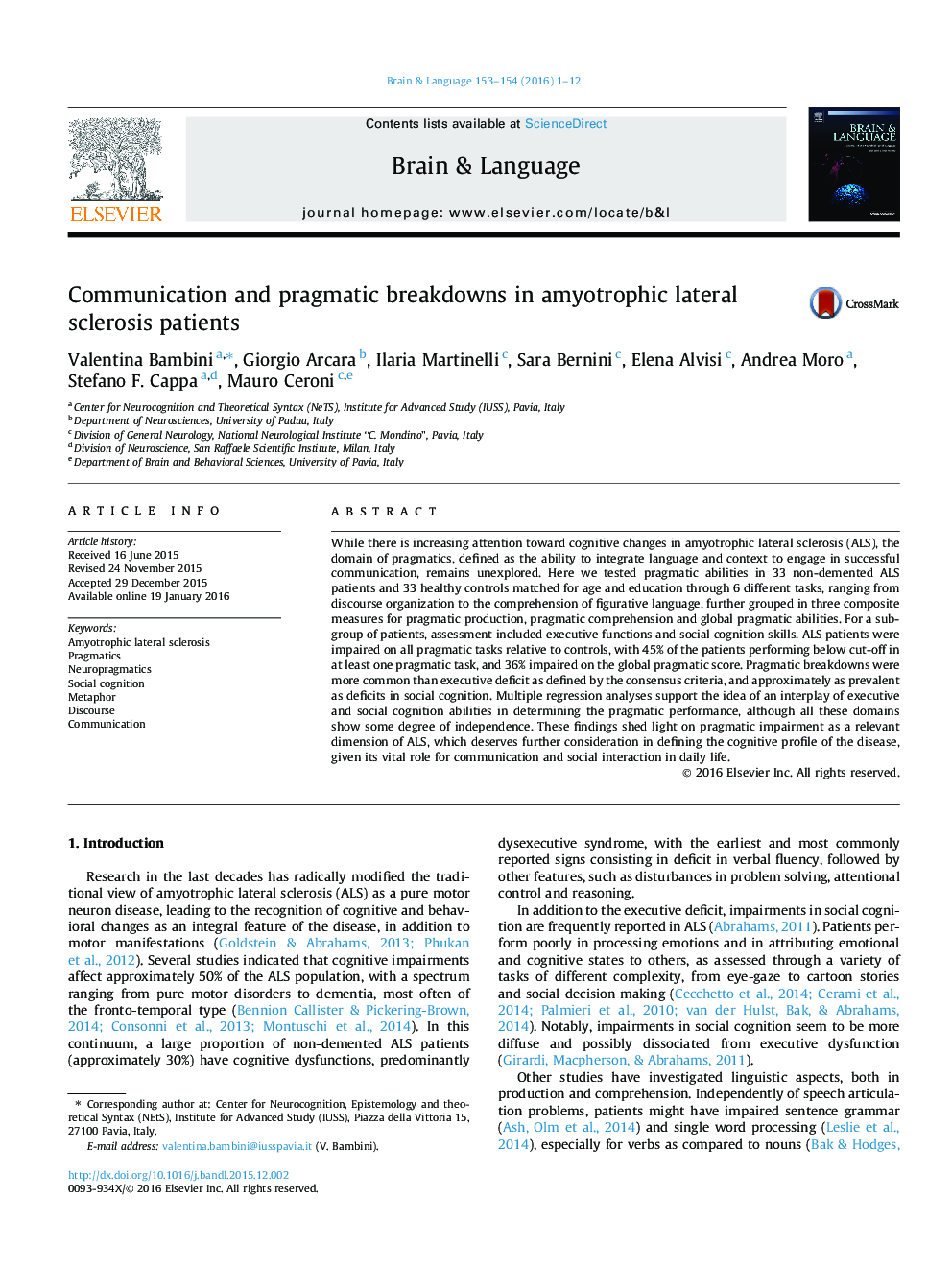| Article ID | Journal | Published Year | Pages | File Type |
|---|---|---|---|---|
| 925260 | Brain and Language | 2016 | 12 Pages |
•We provide the first comprehensive assessment of pragmatic abilities in ALS.•Patients are impaired in several pragmatic tasks, in production and comprehension.•This deficit cannot be solely explained by executive functions and social cognition.•Pragmatic impairment is a relevant dimension to define the ALS clinical profile.•Results are important also to elucidate the neurocognitive substrates of pragmatics.
While there is increasing attention toward cognitive changes in amyotrophic lateral sclerosis (ALS), the domain of pragmatics, defined as the ability to integrate language and context to engage in successful communication, remains unexplored. Here we tested pragmatic abilities in 33 non-demented ALS patients and 33 healthy controls matched for age and education through 6 different tasks, ranging from discourse organization to the comprehension of figurative language, further grouped in three composite measures for pragmatic production, pragmatic comprehension and global pragmatic abilities. For a subgroup of patients, assessment included executive functions and social cognition skills. ALS patients were impaired on all pragmatic tasks relative to controls, with 45% of the patients performing below cut-off in at least one pragmatic task, and 36% impaired on the global pragmatic score. Pragmatic breakdowns were more common than executive deficit as defined by the consensus criteria, and approximately as prevalent as deficits in social cognition. Multiple regression analyses support the idea of an interplay of executive and social cognition abilities in determining the pragmatic performance, although all these domains show some degree of independence. These findings shed light on pragmatic impairment as a relevant dimension of ALS, which deserves further consideration in defining the cognitive profile of the disease, given its vital role for communication and social interaction in daily life.
